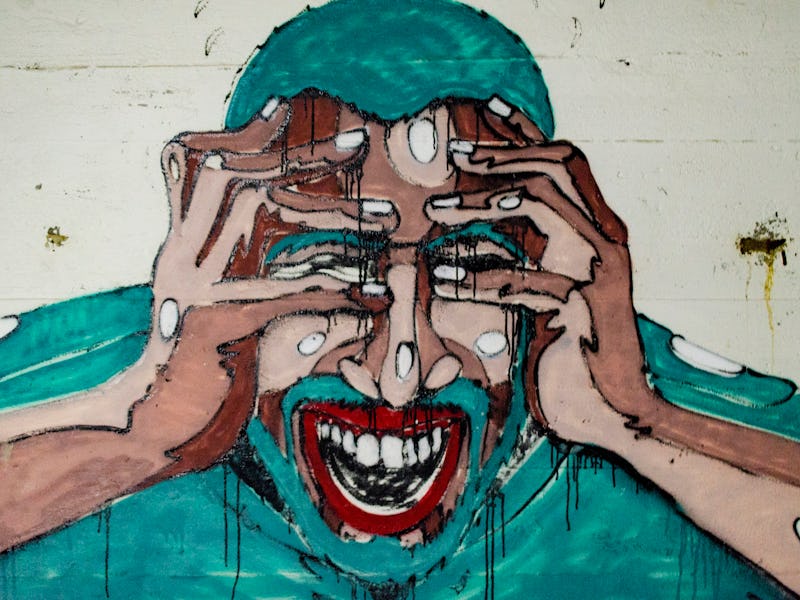3 Actionable Steps to Manage Burnout
Amelia and Emily Nagoski, the authors of 'Burnout', share their insight

The science behind burnout and why women experience burnout differently than men is explained in a fascinating new book called Burnout: The Secret to Unlocking the Stress Cycle, by twin sisters and authors Amelia Nagoski, DMA, and Emily Nagoski, Ph.D.
A version of this article first appeared as the Sunday Scaries newsletter. Sign up for free to receive it on Sundays.
Below is an interview with both of the Nagoski sisters about messages in their book and the scientific and personal research that informed it. It has been edited and condensed.
What motivated you two to come together and write this book?
Amelia: When Emily was promoting her first book about the science of women’s sexuality, she was surprised that the strongest response from women was how much they valued the information about stress and emotions — not the sex science!
When she told me about it, I was not surprised at all. As a conductor, my job is to guide my performers to express the composer’s intended ideas and feelings. I know how hard it is to feel feelings.
I was hospitalized during my doctoral coursework due to stress-induced inflammation. I was in the hospital for days, and the doctors couldn’t figure out what was wrong with me and finally told me it was “just stress.”
I had to “manage my stress better,” whatever that meant. And Emily started bringing me all these books about the science of stress, and I discovered that they all said the same things I had learned in conducting classes and voice lessons: feel your feelings, be aware of your body, stay present to the moment.
When I reminded Emily of this, she said, “We should write a book about that.”
The research reaches way past basic “self-care” strategies. It became a book about connection. Humans are not built to do big things alone. We are built to work together.
Did you find that your own relationship with burnout has changed?
Emily: Absolutely. More than anything, it has given us language to express our experiences, and because we have that language, we can help each other. When I was preparing for my TED talk, I was so stressed out that I didn’t even realize how bad it was.
Amelia had to intervene — she literally came to my house, instructed me to go to the beach for at least 24 hours, and basically said, “You have to go on vacation because I’m taking your dogs!” as she put my dogs in her car.
Was there anything you found surprising while researching Burnout?
When you feel like you’ve “slept too much,” like when you wake up from a nap and you’re even sleepier than you were before, it’s because you began that nap so sleep-deprived that you didn’t really feel how sleep-deprived you were. Your body protects you from feeling exhausted by burning through hormones and neurotransmitters to let you power through. When you finally get some rest, you recover enough that your body lets you feel how tired you are. I’ve understood sleep better ever since.
Why is it good to let the “biological stress cycle” stress run its course?
“Feelings” aren’t just metaphysical ideas. Feelings and emotions, including stress, happen in your body. It’s not imaginary, and it’s not a test of how strong you are or how much you can tolerate. Stress is a cycle that happens in your body, just like breathing and circulation and digestion. What happens if we stop one of those in the middle? Big trouble. When we stop stress in the middle, we have the same problems. It even shows up in our breathing, blood pressure, digestion, and reproductive systems; immune responses including inflammation.
There’s really no end to the damage stress can do if it gets stuck. We’ve lost count of the number of women who have told us they have been hospitalized due to stress-induced illnesses. It’s more than good to complete the stress response cycle. It could save your life.
Emily, left, and Amelia, right, Nagoski, authors of 'Burnout'.
What are some other actionable steps people can take to manage burnout?
Amelia:
- Turn toward uncomfortable feelings with kindness and compassion. When you feel difficult feelings, let yourself experience them with curiosity and nonjudgement. “Hey, I feel bad. Hello, discomfort! What do you have to tell me?”
- Recognize gas-lighting when it’s happening to you. It’s when you hear information that contradicts your lived experience, especially when it’s coming from someone in authority who will benefit from you disbelieving your own perceptions. It’s a painful and confusing experience, and you may need help looking at it.
- Reach out for help. It’s not a sign of weakness to need other people. Human beings’ need for other people is a biological necessity, just like our need for food and water and warmth. The social pressure to be “strong” or “independent” is a lie that will make you miserable.
I was really struck by this sentence: “We’ll show you science that proves you’re normal and you’re not alone.”
When I taught a class about sexuality at Smith College, I asked my students to write down one important thing they learned in the class. One after another, those answers were, “I learned I’m normal.” It was important to them to know that their experience was real and legitimate and normal.
The same things that are true about women’s sexuality are true about how women manage stress. We face stressors that are different for us than for men.
We want the book to tell a story of stress that women could recognize as true, show them the research that demonstrated how and why it was happening, and provide them with positive solutions for making them feel better.
The full version of this interview appears in the Sunday Scaries newsletter. Sign up for free to receive it on Sundays.